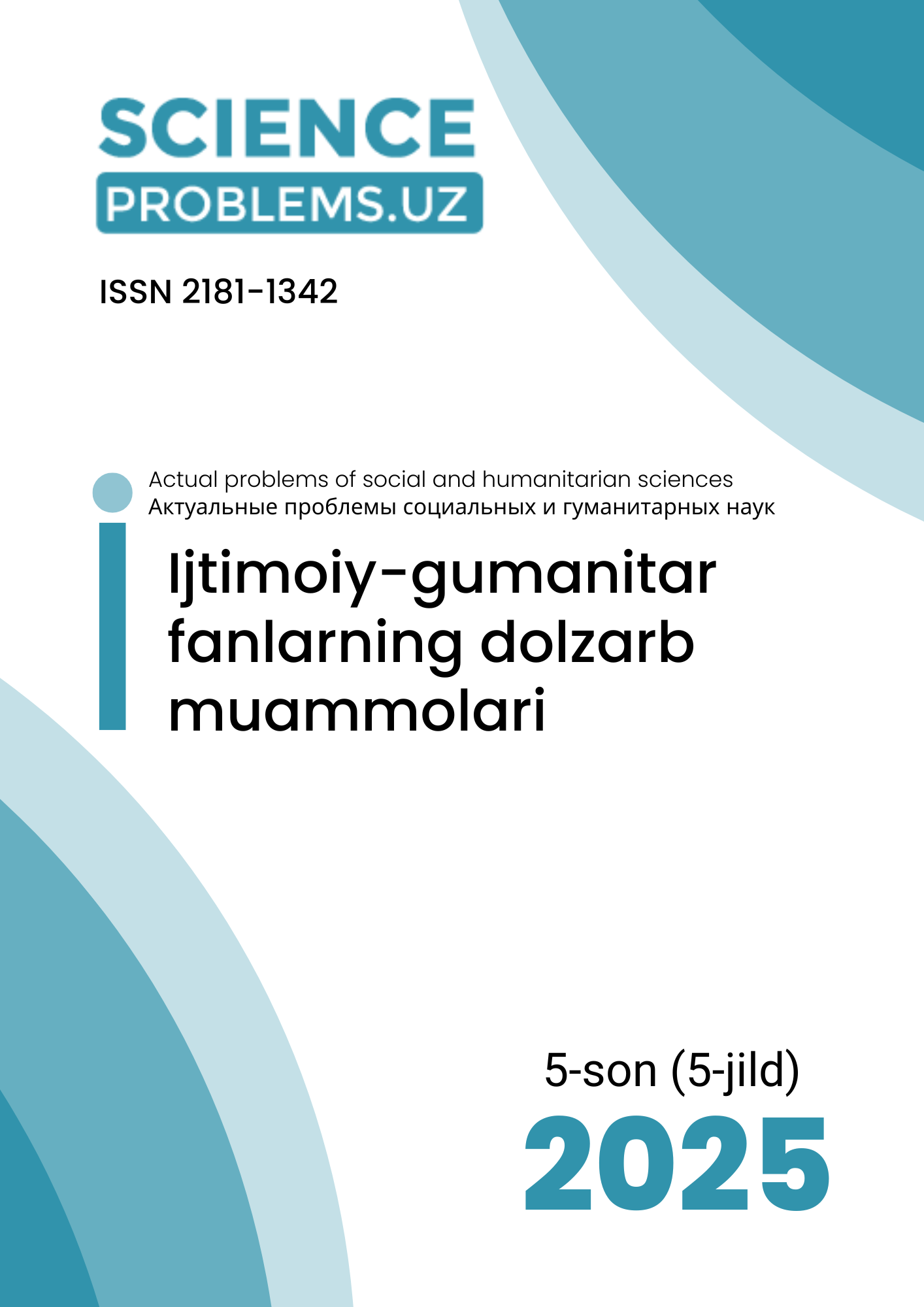АНАЛИЗ ПРИНЦИПОВ ПЕРЕВОДА ЧУВСТВ В ХУДОЖЕСТВЕННОМ ПЕРЕВОДЕ
DOI:
https://doi.org/10.47390/SPR1342V5I5Y2025N53Ключевые слова:
эмоциональная речь, перевод, исходный текст, сравнительный подход, культурный перенос, контекстАннотация
В этой статье обсуждаются вопросы эмоционального содержания при переводе литературы на другой язык с третичным акцентом на встроенных эмоциях и о том, как их можно рассмотреть при переводе. В статье анализируются различные стратегии перевода, обращая внимание на ситуативный контекст, выбор слов и структуры предложений в рамках эмоционального тона и эмоциональной точности в переведенных документах. В этой статье приводятся примеры из других текстов и исследуются, в частности, ряд выдающихся шедевров английской, узбекской и русской литературы, которые выбираются и подвергаются сравнению схожих и различных особенностей, поразительные проблемы перевода эмоционального содержания и решения, которые возникают при попытках перевода вызвать эмоции у международной аудитории.
Библиографические ссылки
1. Abdullayeva, M. R.(2021). English-uzbek translation process and their analysis. Web of Scientist: International Scientific Research Journal, 2(05), 593-601.
2. Neubert, A. (2000). Competence in Language, in Languages and Translation. In Adab B, Schaffner C, Developing Translation Competence..Amsterdam: J. Benjamins Pub. Co; Available from: e-Book Academic Collection (E)BSCOhost), Ipswich, MA. Accessed December 12, 2014.
3. Baker, M. (2018). In Other Words: A Coursebook on Translation (3rd ed.). Routledge.
4. Chekhov, A. (2010). The Princess. New York: Dover Publications.
5. Dickins, J. (2012). The translation of culturally specific items. Language Studies: Stretching the Boundaries. Cambridge: Cambridge Scholars Publishing, 44-45.
6. García Márquez, G. (1985). One Hundred Years of Solitude. New York: Harper & Row.
7. Hosseini, K. (2003). The Kite Runner. New York: Riverhead Books.
8. Murakami, H. (2000). Norwegian Wood. New York: Alfred A. Knopf.
9. Oybek. (1975). Mukammal asarlar to‘plami. T.: Fan, 295 b.
10. Qodiriy, A. (2022). O‘tkan kunlar Toshkent: Yangi asr avlodi.
11. Reese, M. E. (2019). Bygone Days . Asian Book House, p.147.
12. Shakespeare, W. Macbeth. London: Penguin Classics, 2003.
13. Shayxzoda, M.(2019). Mirzo Ulug‘bek . Toshkent: Yoshlar nashriyot uyi.
14. Schiffrin, D. (1987). Discourse Markers. Cambridge University Press, pp. 150-170.
15. Sodiqova, D. (2025). Methods And Examples Of Translating While Preserving The Original Speech Of a Character. Hamkor Konferensiyalar, 1(14), 1362–1366.
Retrieved from https://academicsbook.com/index.php/konferensiya/article/view/1937
16. Vohidov, E. (2005). O‘zbegim. Toshkent: Sharq , 58-59 b.
17. Yusuf, M. (2016).Saylanma. Toshkent: Sharq, 10-11 betlar.








